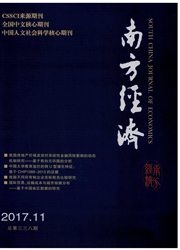

 中文摘要:
中文摘要:
本文从我国制度背景出发,以管理者投资行为和银行贷款行为作为理论基础,检验银行贷款对公司投资效率的影响。研究发现:在整个样本考察期间(2002~2009年),若没获得银行贷款,国有和非国有公司都存在投资不足。获得贷款后,国有公司的投资状况与无贷款时相比发生显著变化,出现过度投资,但非国有公司的改变并不显著,且无显著的过度投资。在金融危机期间(2008~2009年),国有公司获得贷款后出现过度投资,且程度显著高于整个样本期间的平均水平。非国有公司获得贷款后却没有出现过度投资,但没获得贷款时的投资不足程度比整个样本期间更为严重。本文解释了近几年我国大部分国企大规模投资,民企却普遍出现投资不足的现象,并对评估金融危机间银行信贷扩张的实际效应提供理论参考。
 英文摘要:
英文摘要:
Based on the theoretical analysis of manager's investment behavior and bank loan from institutional background in China, this article researches the effect of bank loan on the investment efficiency of SOE and non - SOE. Empirical findings including: during the year of 2002 - 2009, both the state and non - state owned enterprise are underinvestment when the enterprise doesn't get loan, but increase the investment and overinvest after getting bank loan. The state own enterprise's overinvestment are more serious than that of non -state owned enterprise. During the financial crisis, the SOE's overinvestment is serious than usual when getting the bank loan. The non - SOE are seriously underinvestment if the enterprises can't get bank loan, and don't happen to overinvest when getting the bank loan. These findings of this article can explain the overinvestment of SOE and the underinvestment of the non - SOE in China, and can evaluate the real effect of bank's massive loan during the financial crisis.
 同期刊论文项目
同期刊论文项目
 同项目期刊论文
同项目期刊论文
 期刊信息
期刊信息
